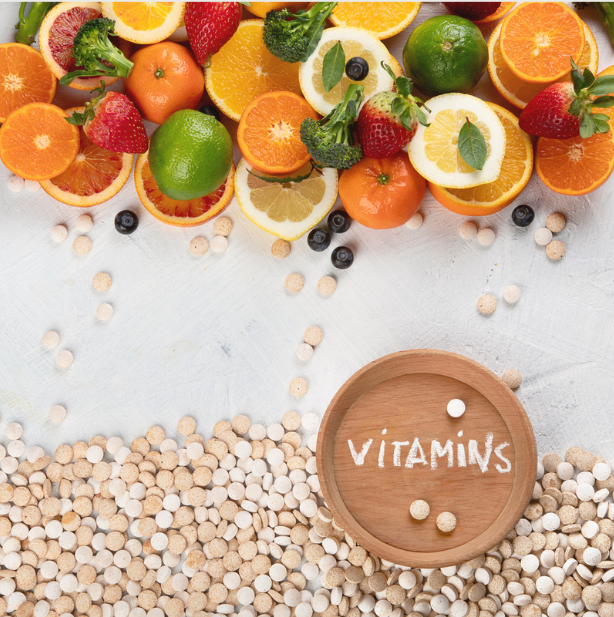By Dr. George Gauthier
If you’re looking for ways to support longevity, improve your health at the cellular level, and fight the effects of aging, there’s one powerful compound you need to know about: Resveratrol. Found in grapes, berries, and even red wine, resveratrol has been making waves in the health and wellness world—and for good reason.
In this blog, we’ll discuss what resveratrol is, how it works, what it’s good for, and how Europeans have been using it for centuries to promote health and vitality.
What Is Resveratrol?
Resveratrol is a naturally occurring compound classified as a polyphenol. Polyphenols are powerful antioxidants found in plants that help protect them from environmental stress, pathogens, and UV radiation. Resveratrol is most famously found in the skins of red grapes, blueberries, cranberries, and peanuts—and yes, even in that glass of red wine!
While the health benefits of red wine are often attributed to resveratrol, the compound itself can be isolated and used as a supplement to achieve therapeutic effects without consuming alcohol.
How Does Resveratrol Work?
Resveratrol’s magic lies in its ability to work at the cellular level. Here are the keyways it supports health:
- Powerful Antioxidant Action: Resveratrol helps neutralize free radicals—unstable molecules that cause oxidative stress and damage to your cells. This oxidative stress is one of the main causes of aging, inflammation, and disease.
- Sirtuin Activation: Resveratrol activates sirtuins, a family of proteins that play a key role in cellular repair, energy production, and longevity. Sirtuins are often called “the longevity genes.”
- Anti-Inflammatory Effects: Chronic inflammation is at the root of most diseases, from cardiovascular issues to neurodegeneration. Resveratrol helps reduce inflammation and supports a balanced immune response.
- Improved Mitochondrial Function: Your mitochondria are the energy powerhouses of your cells. Resveratrol enhances mitochondrial function, increasing energy production and improving overall cellular performance.
- Heart Health Support: Resveratrol helps improve blood flow, reduce blood pressure, and protect blood vessels from damage. It also supports healthy cholesterol levels, reducing the risk of cardiovascular disease.
What Is Resveratrol Good For?
Resveratrol has been extensively studied for its broad range of health benefits. Here’s what it can help with:
- Anti-Aging and Longevity: Resveratrol activates sirtuins and reduces oxidative stress, both of which slow down the aging process and promote cellular health.
- Heart Health: Resveratrol supports cardiovascular function by improving blood vessel elasticity, reducing inflammation, and protecting against oxidative damage.
- Brain Health: As a powerful neuroprotective compound, resveratrol helps combat oxidative stress in the brain, supporting cognitive function, memory, and focus. It also helps reduce the risk of neurodegenerative diseases like Alzheimer’s.
- Immune System Support: By reducing inflammation and oxidative damage, resveratrol strengthens the immune system and improves your body’s ability to fight off illness.
- Metabolic Health: Resveratrol can improve insulin sensitivity, balance blood sugar, and support weight management by enhancing energy metabolism.
- Skin Health: Thanks to its antioxidant and anti-inflammatory effects, resveratrol helps protect the skin from UV damage, reduce wrinkles, and promote a more youthful appearance.
How Do Europeans Use Resveratrol?
Europeans have long understood the benefits of resveratrol-rich foods and beverages for health and longevity. In regions like France, where the Mediterranean diet is celebrated, red wine has been enjoyed for centuries not just for its taste but for its health-promoting properties. This phenomenon, often called the French Paradox, refers to the observation that despite diets higher in fats, French populations experience lower rates of heart disease—a benefit often attributed to moderate red wine consumption and resveratrol.
In European herbal medicine, resveratrol-rich plants like grapes and Japanese knotweed have been used to:
- Support cardiovascular health
- Combat inflammation
- Boost energy and vitality
Modern Europeans continue to embrace resveratrol supplements and resveratrol-rich foods as part of their proactive approach to health, longevity, and anti-aging.
How to Get More Resveratrol Naturally
You don’t have to rely solely on supplements to get the benefits of resveratrol. Here are some of the best natural sources:
- Red Grapes: Eat the skin, where most of the resveratrol is found.
- Blueberries and Cranberries: These berries are packed with polyphenols, including resveratrol.
- Red Wine: A moderate amount of high-quality red wine (such as Pinot Noir) can provide a resveratrol boost.
- Peanuts: A handful of peanuts or peanut butter contains small amounts of resveratrol.
- Dark Chocolate and Cocoa: Look for high-quality dark chocolate for a delicious antioxidant boost.
For therapeutic effects, however, resveratrol supplements can provide a higher, more consistent dose. Look for trans-resveratrol, the most bioavailable and effective form of this compound.
Final Thoughts
Resveratrol is a shining example of how nature provides powerful tools to support our health, longevity, and vitality. By reducing oxidative stress, activating sirtuins, and promoting heart, brain, and metabolic health, resveratrol is a must-know for anyone seeking to age gracefully and feel their best.
Whether you enjoy resveratrol through nutrient-rich foods, high-quality supplements, or the occasional glass of red wine, this incredible compound can be an invaluable part of your health and longevity toolkit.
To your health and vitality,
Dr. George Gauthier
For more resources on healing, performance, and longevity, explore Apex Life & Longevity.






